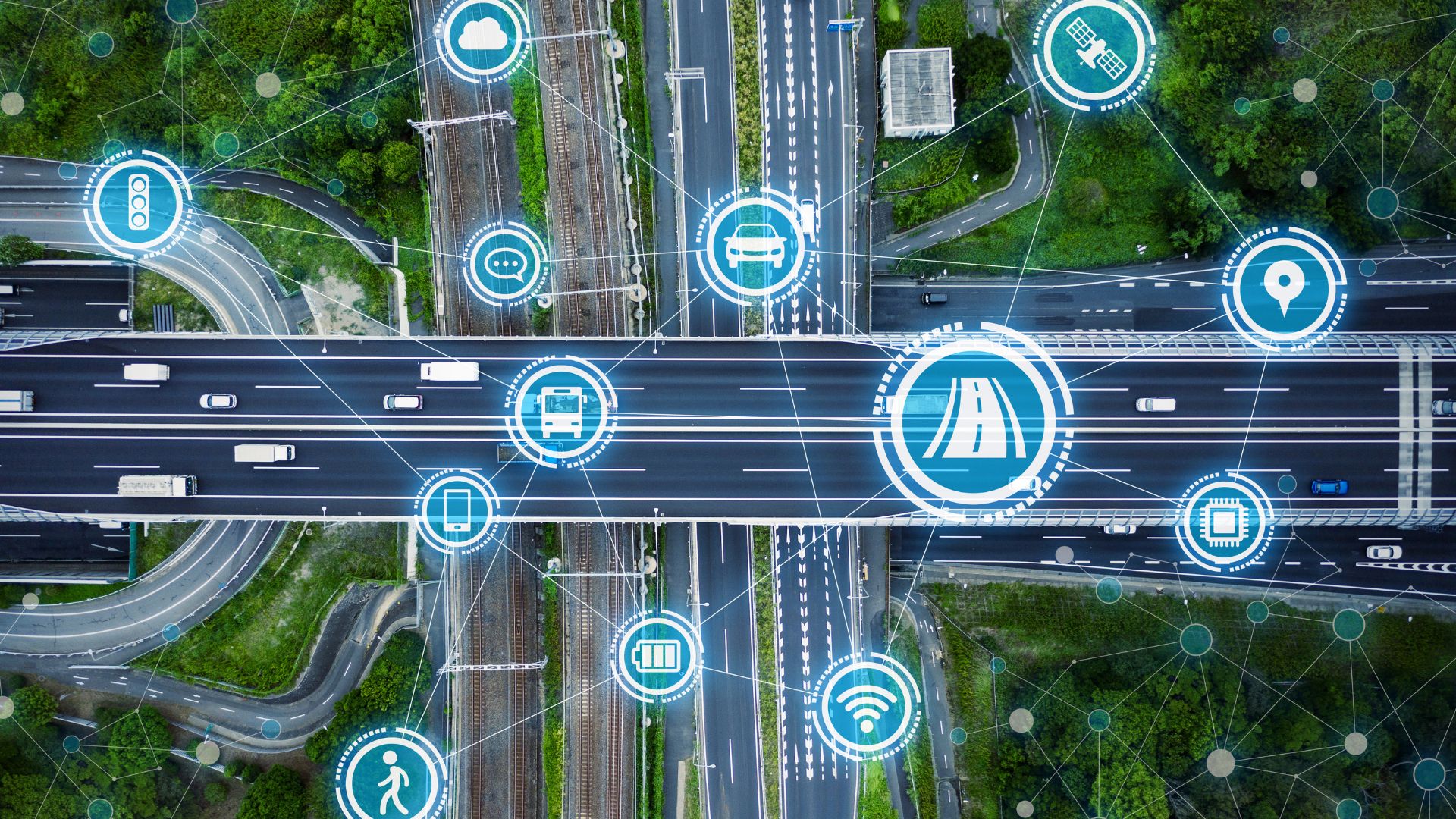Shubhangi Shukla
Infrastructure Financing Update – August 2023
The update on the developments in the infrastructure sector in August 2023 brings forward perspectives on infrastructure finance from the ongoing G20 summits, an update on the long drawn and awaited multinational India–Myanmar–Thailand Trilateral Highway as well as new developments in national infrastructure in the energy, aviation and telecom sectors.
 Infrastructure Dialogues
Infrastructure Dialogues
G20 Infrastructure Investment Dialogue was held on 16th July 2023 in Gandhinagar, Gujarat. At the event, the Finance Minister underlined ‘the need for embracing innovative strategies to attract private investment, bridge financing gaps and fostering sustainable development for infrastructure in cities’. She also stated that the situation with regard to financing infrastructure had become ‘more challenging’ due to tightening of monetary policy in crucial markets leading to the hardening of interest rates and the increased debt repayment burden. She stated that innovative financing instruments such as blended finance, structured project finance, securitization, thematic bonds, biodiversity offerings and local currency finance were required to fill these funding gaps and leverage private sector participation. The minister also spoke in favor of ‘developing an ecosystem to improve the creditworthiness of urban local bodies through appropriate policy and regulatory framework’.
The minister met Jin Liqun, President, Asian Infrastructure Investment Bank (AIIB), in Gandhinagar for the 3rd G20 Finance Ministers and Central Bank Governors meeting and discussed the role of (Multilateral Development Banks) MDBs, including AIIB in addressing global developmental challenges. She suggested the AIIB also use innovative financing ways to better address infrastructure needs of member countries.
G20 finance and central bank chiefs also began talks on 18th July 2023 to discuss debt restructuring deals and fairer international tax agreements, aiming to bolster a ‘sagging’ global economy. Areas of talks included the health of the global economy, sustainable finance and infrastructure and efforts to tackle debt distress as the world’s poorest countries suffer from global debt crisis while also having to fight climate change. However, China, as the world’s second largest economy and a major lender to several stressed, low-income countries in Asia and Africa, reportedly, so far resisted a common multilateral understanding on the issue.
Financial Services
The International Financial Services Centre (IFSCA) at Gujarat International Finance Tec-City (GIFT) has been designated as a ‘special international financial jurisdiction’ with trusted business regulations, competitive tax structure with focus on ease of doing business.
A Free Trade Agreement (FTA) is being negotiated between the UK and India which also has a financial services chapter in it. Representing City of London Corporation, the policy chairman, Mr. Christopher Hayward who was on a week’s visit to India said that the Indian government should go for ‘more liberalization of financial and legal services’.
The City of London Corporation represents and promotes the UK’s financial and professional services. Hayward and his team were in GIFT City to explore investment opportunities for UK firms and attract investment for the City of London.
Mr. Hayworth stressed on the fact that the projections for India in the next ten years are ‘huge’ and that liberalization would mean ‘more opportunity’. “We have a lot of expertise in green finance and infrastructure finance, which will be very relevant in India because PM Modi’s push for infrastructure will require private finance along with public funds,” he added.
Roads and Highways
Kolkata to Bangkok via Myanmar Trilateral Highway–
India–Myanmar–Thailand Trilateral Highway (IMT Highway) is an approximately 1400 km 4-lane under-construction highway that will connect Moreh, India with Mae Sot, Thailand via Myanmar. It has been pursued by India under its ‘Look East Policy’ (1991- 2014) and its follow up ‘Act East Policy’ (2014 onwards ) to boost trade and commerce amongst ASEAN nations as well as the rest of Southeast Asia. It was also envisioned to maintain strategic relations with the nations of the region to counter the strategic influence of the People’s Republic of China. India will have the longest stretch of the highway, while the shortest will be in Thailand.
According to the proposed plan, the highway will cover cities like Sukhothai and Mae Sot in Thailand and Yangon, Mandalay, Kalewa, and Tamu in Myanmar before entering India. In India, the road is likely to go through Moreh, Kohima, Guwahati, Srirampur, and Siliguri to Kolkata, as per a report from TOI. Earlier, the government was aiming to make the highway operational by December 2019 but the project has been delayed. Around 70 per cent of construction work has been completed. But Myanmarmyanmar is left due to the situation in the country.
The Minister for External Affairs, Mr. Jaishankar was in Bangkok to participate in the 12th Foreign Ministers’ Meeting of the Mekong Ganga Cooperation (MGC) Mechanism and attend the BIMSTEC Foreign Ministers’ Retreat in July 2023 where he said the highway was a “very difficult project” because of the situation in Myanmar and it is the government’s priority to find ways to resume it. A group of Commerce Ministers from various countries have revealed that the highway was expected to be completed and ready for launch in four years’ time.
India has also proposed extending the highway to Cambodia, Laos and Vietnam. The proposed approx 3,200 km (2,000 mi) route from India to Vietnam is known as the East-West Economic Corridor. This highway will also connect to the river ports being developed along the way at Kalay (also called Kalaymyo) and Monywa on Chindwin River.
It was claimed by the Joint Secretary, Ministry of Road Transport and Highways at the Asean-India Connectivity Summit in December 2017 that this connectivity will generate annually ‘an estimated US$70 billion in incremental GDP and 20 million in incremental aggregate employment by 2025’. Prime Minister Narendra Modi in 2015 at the Asean-India and East Asia summits also ‘proposed to commit a Line of Credit of 1 billion US dollars to promote projects that support physical and digital connectivity between India and ASEAN’.
In December 2020, Bangladesh expressed official interest to join the highway project in order to boost connectivity from Dhaka. According to reports, the existing ‘BBIN motor vehicle agreement’ facilitates reduced border controls and customs inspection for freight transport between India and Bangladesh.
Civil Aviation
The Navi Mumbai International Airport project has been proposed to be developed in multiple phases with an annual capacity of 60 million passengers. In the initial phase, an annual capacity of 20 million passengers and 800,000 tons of cargo handling capacity is being planned as reported by the Economic Times. The upcoming airport will address the capacity constraints at Chhatrapati Maharaj International Airport located at Mumbai.
Adani Enterprises manages its airport operations at its mandated 6 locations (Ahmedabad, Lucknow, Mangaluru, Jaipur, Guwahati and Thiruvananthapuram) through Adani Airport Holdings as well as Mumbai and greenfield Navi Mumbai International airports.
Renewable Energy
Adani Transmission Limited (ATL) hopes to take Mumbai to 60 per cent renewable power making it the ‘first mega city in the world’ to achieve over 50 per cent power from solar and wind.
Urban Development
On July 15, the Maharashtra government gave final approval to Adani Group for the Dharavi Redevelopment Project (DRP) which is spread over 240.35 hectares. Being an equity partnership, Rs 100 crore from the state funds of Maharashtra government, while the Adani group will be spending ₹400 crore as the project’s primary partner.
Telecom
The Union Cabinet has approved the third revival package for Bharat Sanchar Nigam Limited with a total budget of Rs 890.47 billion which includes an allotment of 4G/5G spectrum through equity infusion. The authorized capital of the company will be increased from Rs 1.5 trillion to Rs 2.1 trillion.
The Telecom Regulatory Authority of India (Trai) released a set of recommendations advocating the adoption of a regulatory framework for responsible development of artificial intelligence (AI). TRAI’s report said that it was important to regulate specific AI use cases that may have a direct impact on humans within a risk-based framework.
Centre for Financial Accountability is now on Telegram. Click here to join our Telegram channel and stay tuned to the latest updates and insights on the economy and finance.

